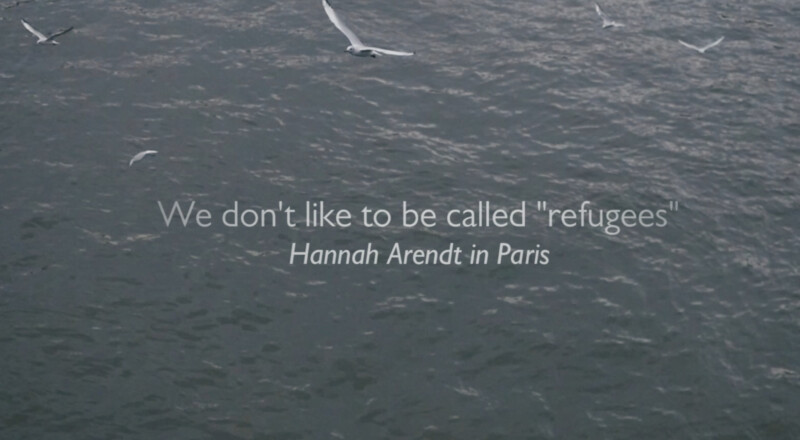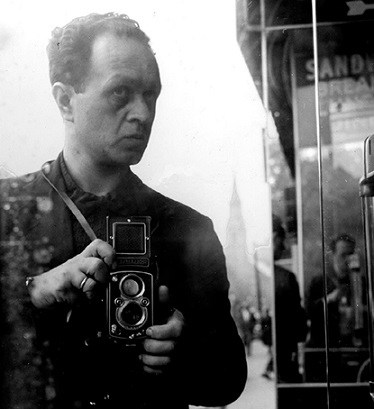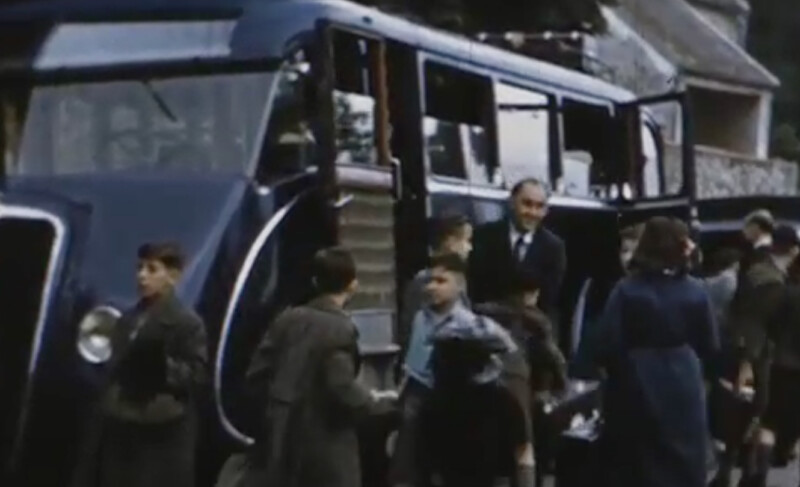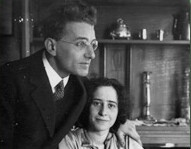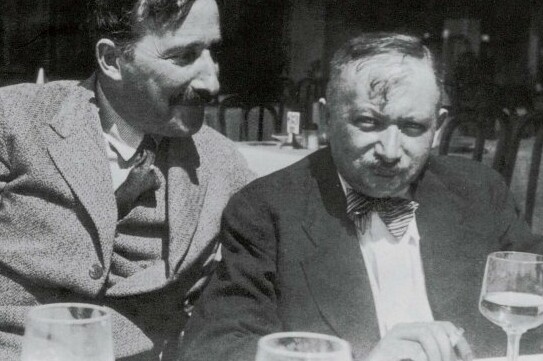CURRICULUM VITAE
I, Hannah Arendt, was born on 14 October 1906 in Hannover. In autumn 1924 I passed the school-leaving examination of a humanistic grammar school in Königsberg/Pr. From 1924 to 1928 I studied philosophy, protestant theology and Greek philology, namely philosophy as my main subject, theology and Greek as minor subjects. I studied philosophy with Professors Heidegger (Marburg), Husserl (Freiburg) and Jaspers (Heidelberg), theology in Marburg with Professor Bultmann and in Heidelberg with Professor Dibelius and Greek philology with Professor Regenbogen in Heidelberg. In autumn 1928 I received my doctorate in Heidelberg under Jaspers with a thesis on the concept of love under Augustin, which was published in 1930 by Springer (Berlin) in a series of philosophical writings. Through the mediation of Mr. Jaspers, Mr. Heidegger and Mr. Dibelius, I received a scholarship from the Notgemeinschaft der Deutschen Wissenschaft in 1930 or 1931 for a thesis on the problem of German-Jewish assimilation, exemplified by the life of Rahel Varnhagen. During these years I published the following major essays: “Philosophy and Sociology” in the Gesellschaft, “Rilkes Duineser Elegien” in the Neue Schweizer Rundschau, “Lessing and Mendelssohn” in the Zeitschrift für Wissenschaft des Judentums, “Rahel Varnhagen” in the Reklam-Almanach. Articles on Adam Müller, Friedrich Gentz, Augustin and others, as well as book reviews, published in the Kölnische Zeitung, the Frankfurter Zeitung and the Archiv für Sozialwissenschaft.
In August 1933 I emigrated to Paris, where I broke off all scientific work in the first years in order to gain a practical overview of the Jewish question. After a brief secretary job with Arnold Zweig, I headed the educational department of a committee for the redeployment of German Jewish refugees (Agriculture et Artisanat) and in 1935 founded a French section of the Jugendaliyah for refugee children, through which some 120 children immigrated to Palestine until 1936. In pursuit of this work, I spent 1935 3 months in Palestine. During its 2 years of existence, this office expanded into a kind of counseling centre for young people, as such an institution did not exist in Paris. After 1936 I continued this work only part-time, because the Popular Front government had to grant work permits for young people and certificates were needed more urgently in Germany. At the end of 1936 I took over the secretariat of a committee that had been formed in defense of David Frankfurt. An extensive collection of material could be submitted to Frankfurter’s defender for his defense; however, every attempt to influence the nature of the defense itself failed.
From 1937 until the November pogroms of 1938 I withdrew from all practical activities in order to resume my scientific studies. At that time I lived on philosophy classes. During this time I finished my work on Rahel Varnhagen and then worked on a history of anti-Semitism. I gave a series of lectures on this topic at the German University in Paris.
The November pogroms of 1938 and the new influx of refugees into France put an end to this contemplative activity; I returned to practical work and was entrusted by the Jewish Agency (Department: Central Bureau for the Settlement of German Jews, Dr. Landauer, Jerusalem) with alien issues concerning the immigration of children and adults from Central Europe to France. During the war, with the help of the Zionist Organization of France, I set up a service for German and Austrian internees, whose main task was to bring people out of the concentration camps.
Hannah Arendt (1906-1975) was a Jewish German-American political theorist and writer.
After being detained by the Gestapo for several days in 1933, she fled to France and worked there, among other things, in Zionist organizations that helped Jews to escape. In 1937 she was deprived of German citizenship, which made her a stateless person for almost 14 years. After she was imprisoned for a few weeks in the French internment camp Gurs, she managed to escape from there as well. In 1941 Arendt came to the USA, where she spent the rest of her life and was granted US citizenship in 1951. In her first years in New York she worked as a publicist, editor and contributor to several Jewish magazines (including “Der Aufbau”) and organizations (including the Commission on Jewish Cultural Reconstruction). Under the impression of the experience of flight and arrival that she and other European Jews had had, she also wrote the essay “We Refugees” in the Menorah Journal in 1943. From 1953 to 1967 Arendt taught as a professor at Brooklyn College in New York, at the University of Chicago and at the New School for Social Research in New York.
Arendt, Hannah, 1942; Anders, Günther: Schreib doch mal hard facts über dich. Briefe 1939 bis 1975, Texte und Dokumente, Munich 2016. Pp. 30-31.
